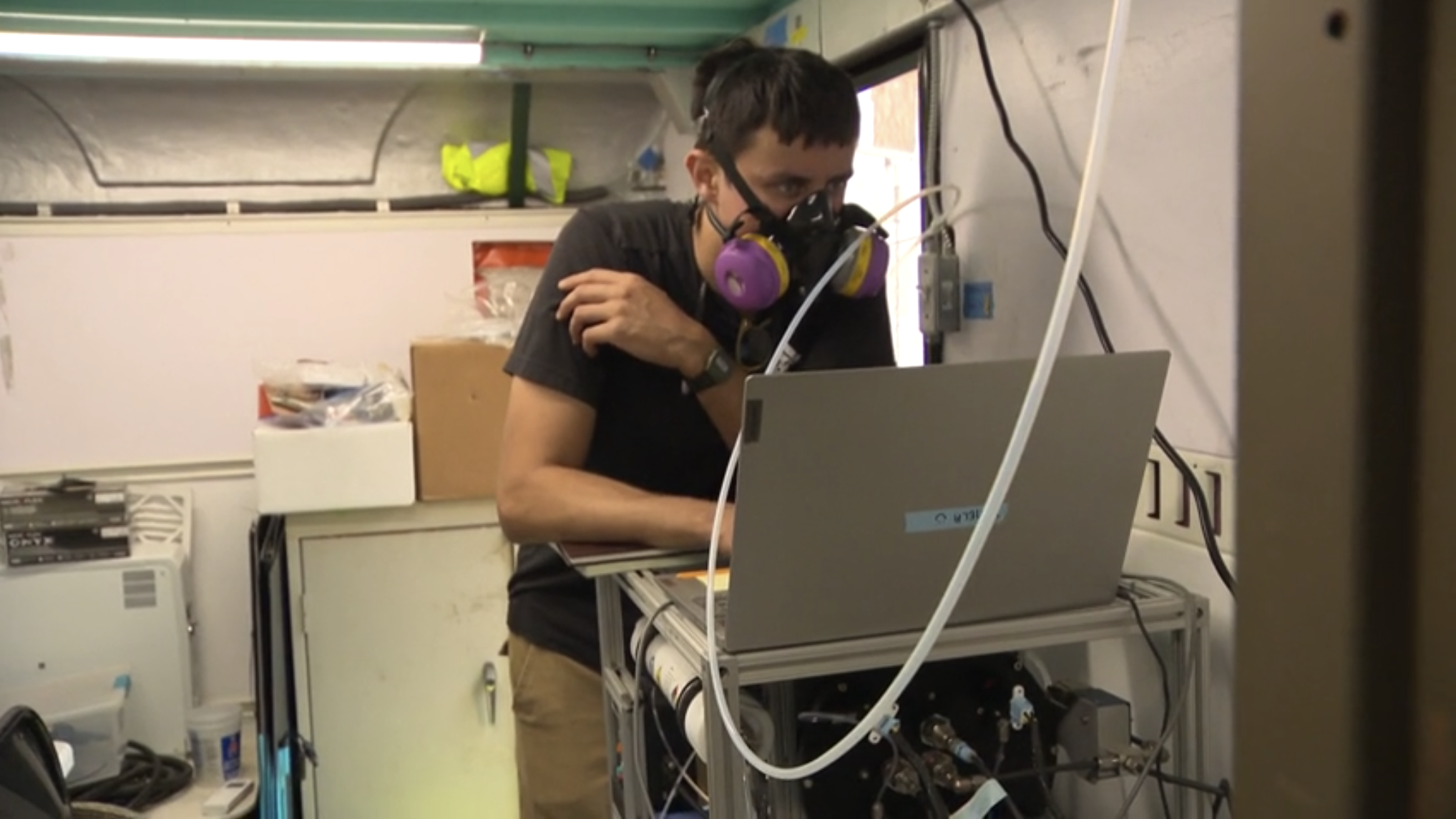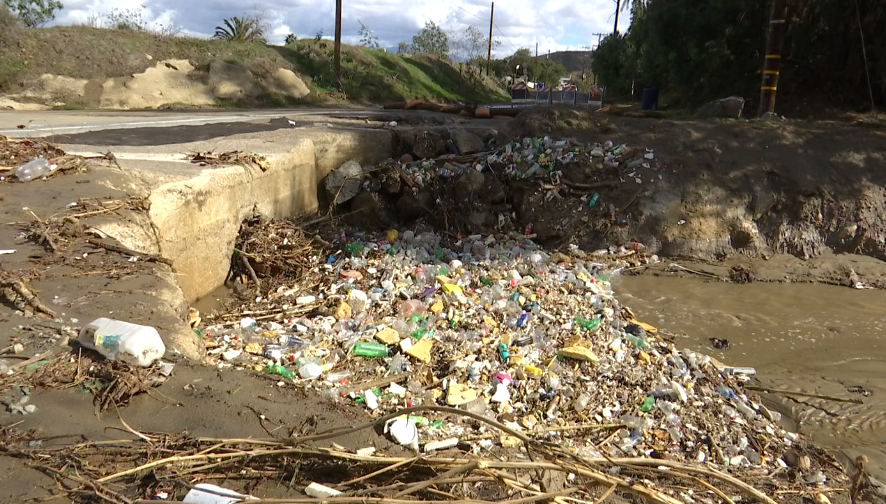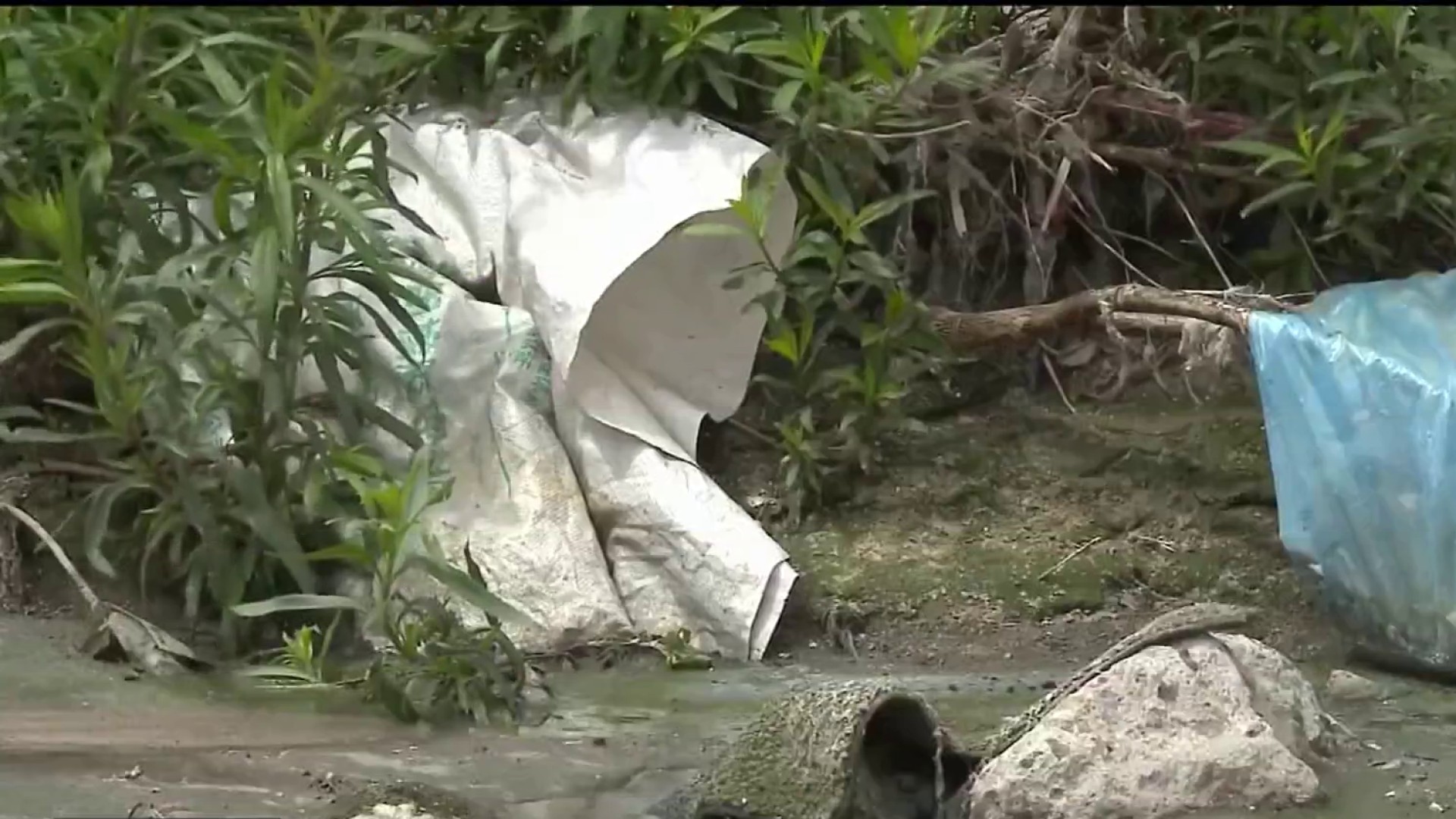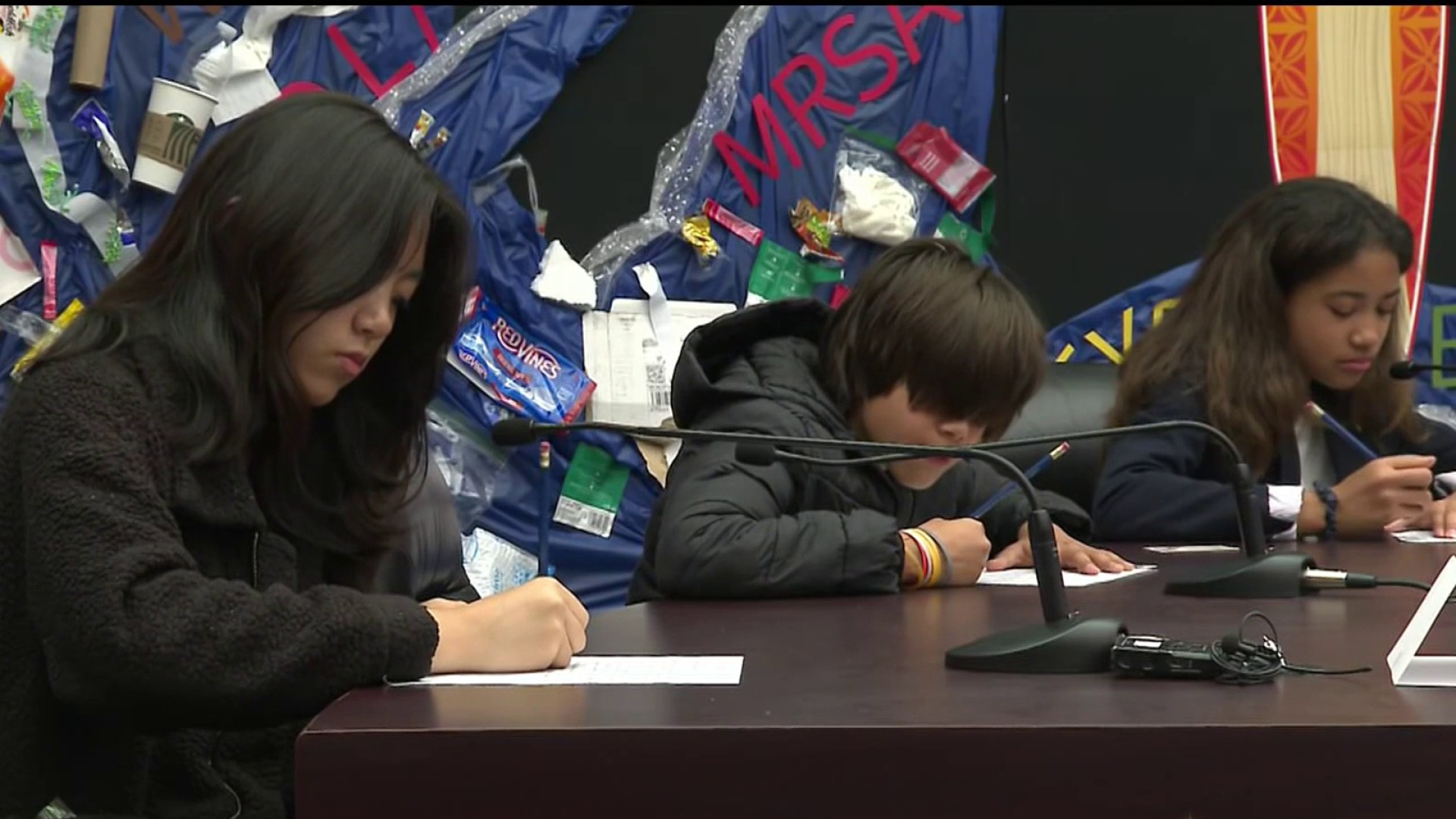Scientists from two independent groups found skyrocketing levels of two types of toxic gases in the area near a sewage crisis near the U.S.-Mexico border, but the county of San Diego on Tuesday said the gasses are not a concern to the community.
Toxic gases detected
The bubbling ooze that flows by the millions of gallons a day down the Tijuana riverbed, closing Imperial Beach for more than 1,000 days, is airborne.
Relevant content:
Get top local stories in San Diego delivered to you every morning. Sign up for NBC San Diego's News Headlines newsletter.
Austin Texas’ Robotic Emergency Deployment, or “RED team” as it’s known, arrived in the Tijuana River Valley on Sunday night. They are the "Top Gun" of hazmat specialists and fly drones in airspace that is too dangerous for human testing.
Monday night, a gas meter alerted one of the members of the RED team to high levels of hydrogen cyanide -- a highly poisonous chemical that can lead to health concerns when inhaled over lengthy periods of time. The toxic chemical compound just shot to the top of the testing list Monday night for Cal EPA and San Diego State University’s Department of Health Studies researchers that are working there.
“Any is not good, but it's people that have to breathe it every night when it seems to peak in the evening for weeks and months and years on end. We start to worry about their health,“ Paula Stigler Granados, an SDSU associate professor, said.
Prolonged exposures to these gasses can lead to headaches, nausea, nervous system issues and even death. South Bay schools have limited outdoor exposure for students, and the San Diego County Air Pollution Control District is recommending nearby residents stay inside.
Stigler and his team joined Imperial Beach Mayor Paloma Aguirre Monday to warn residents of the high readings, and the San Diego County Air Pollution Control District warned that residents should stay indoors because the odors could cause adverse health effects.
But the county of San Diego -- and their own hazardous materials team that was sent in to evaluate the area on Monday -- say otherwise.
On Tuesday, Board of Supervisors Chair Nora Vargas said the air quality in the region are within safe limits and "do not pose a public health threat at this time." The county has not seen the data from the RED team.
"As Chairwoman, I want to reassure everyone that this is not an imminent threat, and it’s safe to be outside and attend school,” Vargas said. “Our county experts are actively gathering public health data and conducting research to provide the most accurate information. It’s unacceptable that South County residents have to worry about whether it’s safe to go outside. I’m fighting every day to address the root of this issue, but for now, you can trust the data—we’ve got your back.”
Vargas said she planned to ask the California Air Resources Board, on which she serves, to establish a real-time dashboard for residents to monitor conditions.
On Thursday night, Dr. Kim Prather, a professor of chemistry at Scripps Institution of Oceanography, pulled out most of her 50-member research team after detecting high levels of hydrogen sulfide in the air.
Prather says hydrogen sulfide should not exceed 30 parts per billion for more than an hour, but her team was measuring amounts more than 30 to 100 times that.
"As you know, I feel strongly about solving this problem, but cannot in good conscience continue to put my own people at this level of risk," she wrote in an email to colleagues.
Residents file suit
Imperial Beach resident Marvel Harrison and her husband spent their nest egg to retire there.
“It's been used in warfare, very heartbreakingly used in suicides. It’s a poisonous, poisonous gas,” Harrison said.
The Harrisons are one of a half-dozen families named as plaintiffs in a class-action lawsuit against Veolia Water West Operating Services.
“A class action suit is always to be able to hold people accountable. That’s our main goal,” Harrison said.
Harrison says they are asking for more than $200 million to be shared among the residents of Imperial Beach for their hardship. She says Veolia was hired by the International Boundary Water Commission to service and build wastewater treatment plants.
“This company has failed us as residents and here as a community,“ Harrison said.
In part of an email sent to NBC 7, a spokesperson wrote: “Veolia looks forward to continuing to assist IBWC with the operation of the South Bay International Wastewater Treatment Plant and hopes that the substantial repairs, rehabilitation and expansion of the facility planned by IBWC will bring relief to the affected communities in the near future.“
WATCH NBC 7's special 'Toxic Tide: The sewage crisis at the border'
NBC 7 investigates the millions of gallons of raw sewage crossing from Tijuana into the United States every day, including how the crisis affects our health — and what must be done to end it.
Following the border sewage crisis
The rotting smell has been a curse to those living in the area for more years than most care to count, but what they’ve really been breathing, is a mystery just starting to unravel.
Research team findings were announced Monday morning at a press conference.
Calls for government action
The city and county are once again asking the governor and president to declare the situation a state of emergency. In attendance were Reps. Juan Vargas, Sara Jacobs, Scott Peters, all D-San Diego, and Mike Levin, D-Dana Point.
"We write to reiterate our request for a State of Emergency in light of new findings that alarming levels of noxious gas are emanating from the Tijuana River," they wrote in a joint letter to President Joe Biden and Gov. Gavin Newsom. "Recent data has made it clear that these fumes are causing an immediate and serious threat to the health and safety of residents of South San Diego, and our community needs additional support."
The trans-border flows from broken sewage infrastructure in the river valley have lead to beaches in the South Bay being closed for more than 1,000 consecutive days, the U.S. Navy having to move some training exercises and led to a persistent smell of sewage in some areas.
"I called for this step last year to help combat pollution in the Tijuana River Valley, and today I'm reiterating my call to President Biden and Governor Newsom based on this new data," Vargas said. "In the past, the federal government has used a state of emergency to unlock federal assistance and provide residents with monitors, filters and more. Our communities need that kind of support. I also fully support requests for emergency assistance from local and state agencies. We need a whole-of-government response, and we cannot wait."
last week, Sen. Alex Padilla, D-California, was joined by San Diego elected leaders to announce a bill intended to consolidate all infrastructure project efforts in the Tijuana and new river watersheds under the Environmental Protection Agency.
The proposed bill would allow the EPA to manage the rivers through a water quality management plan within 180 days of its passing, require the EPA to create a consensus list of projects and give the International Boundary and Water Commission more authority to address stormwater quality.
Late last month, elected leaders applauded the IBWC's announcement that it has awarded the contract for a project to expand the South Bay International Wastewater Treatment Plant -- one of several culprits for wastewater and sewage spillage into the Tijuana River Valley. Over the course of the project, the IBWC will use the more than $400 million in federal funding secured by the Congressional delegation to repair and expand the plant.
The bill proposed Thursday could change how the federal funds are doled out and managed, even for projects already in the works.
In May 2024, the elected officials called on the U.S. Centers for Disease Control and Prevention to look into the contaminants in the water, soil and air from the sewage and the connection to reported increases in illnesses and other symptoms. The CDC has agreed to begin an investigation into the public health impacts of the Tijuana River sewage pollution.
That survey will involve several hundred households near the border.
"People in the South County have lived far too long with flows of raw sewage in the Tijuana River Valley impacting their lives," said San Diego County Supervisor Nora Vargas. "This agreement with the CDC is a big win for us, and one I have advocated for. It brings the world's leading public health experts into our community to help get us the answers we deserve."






